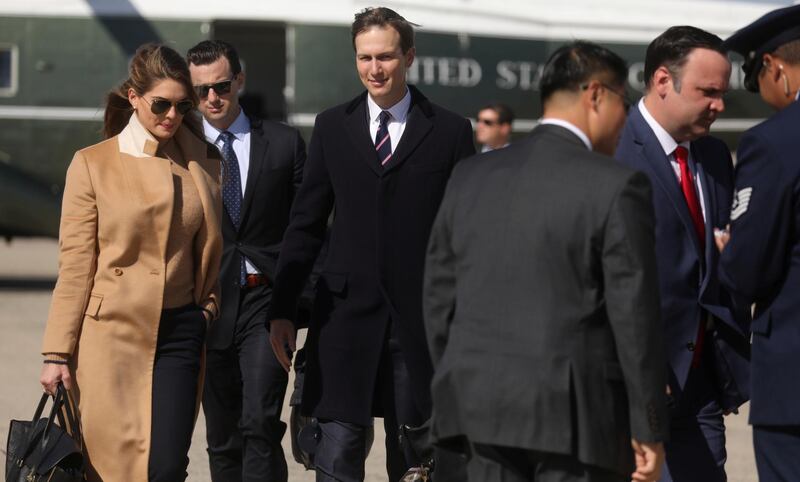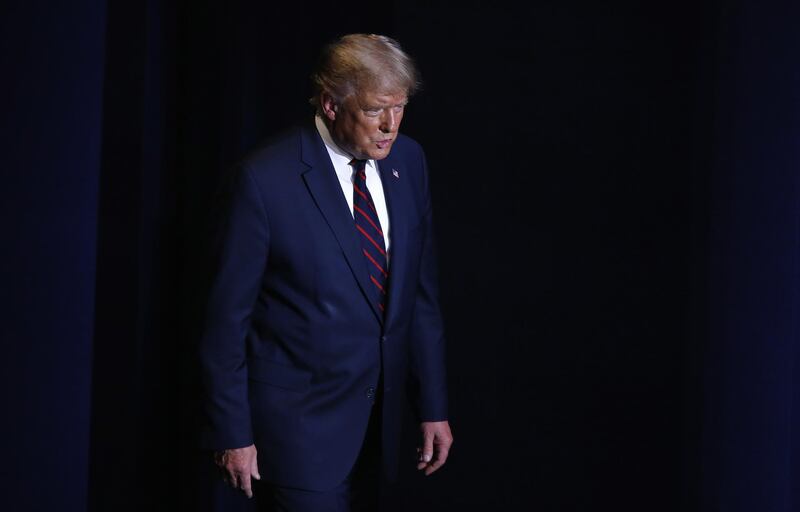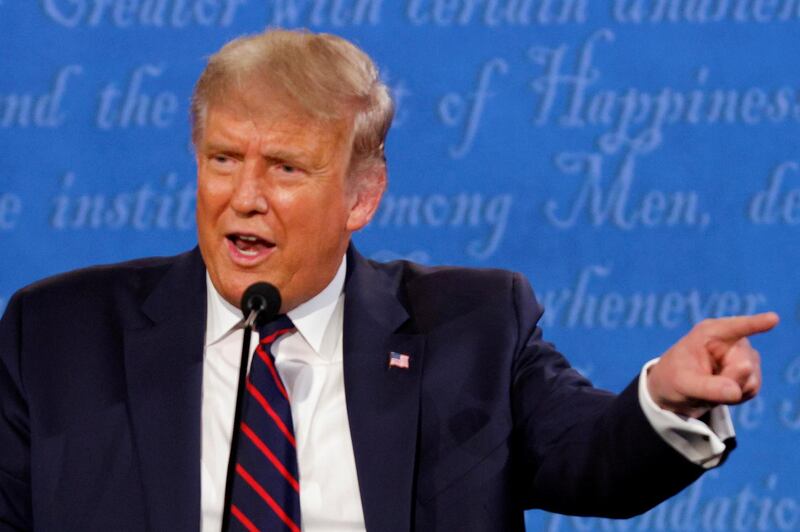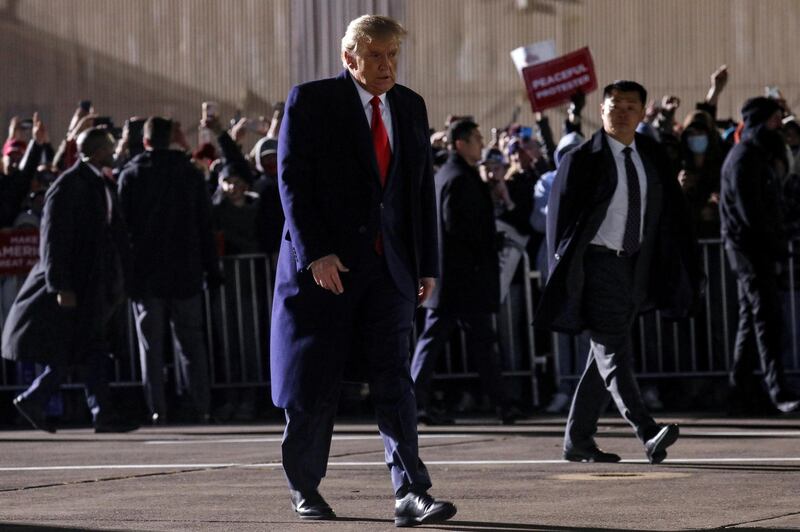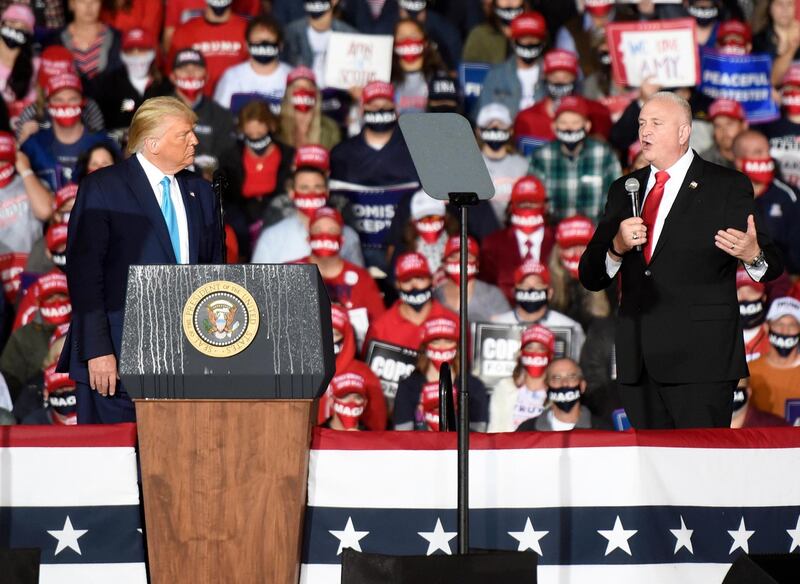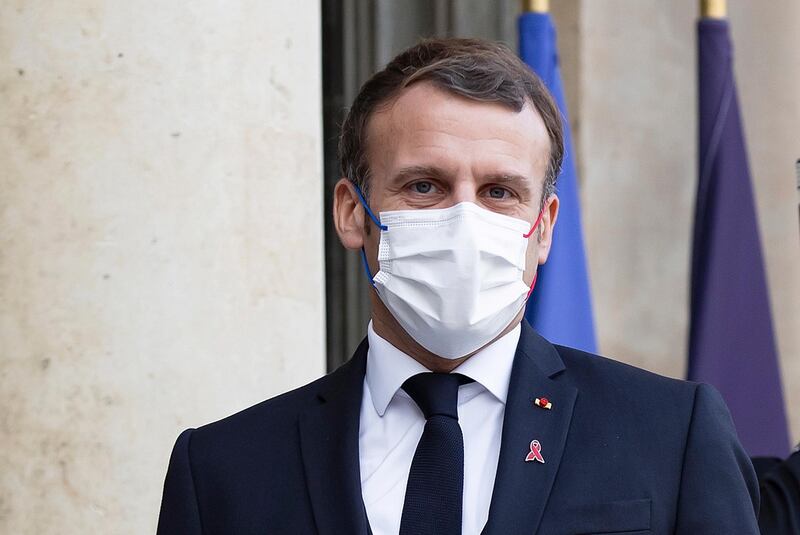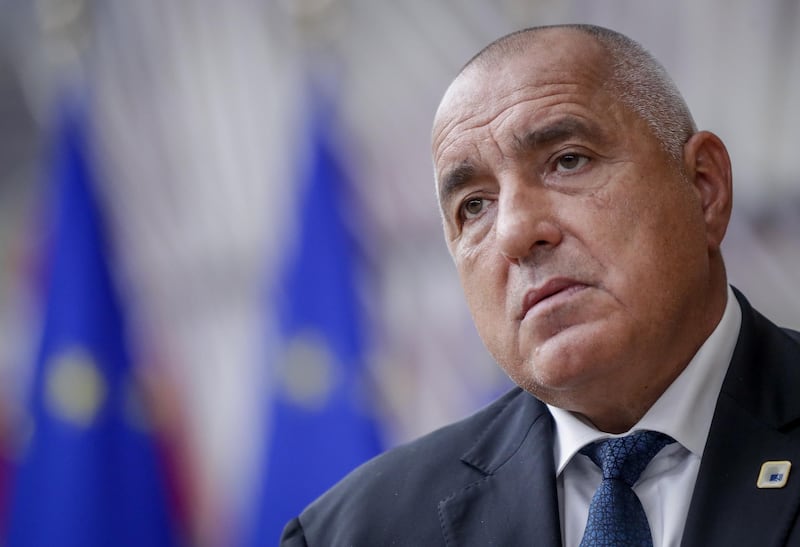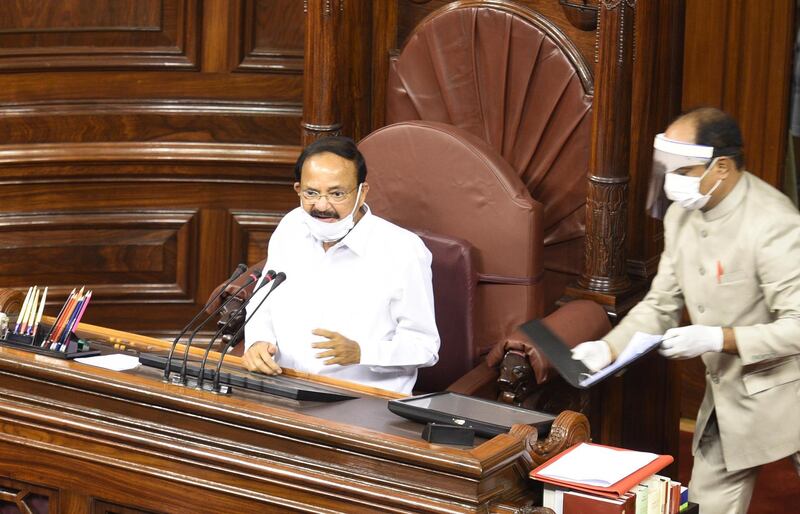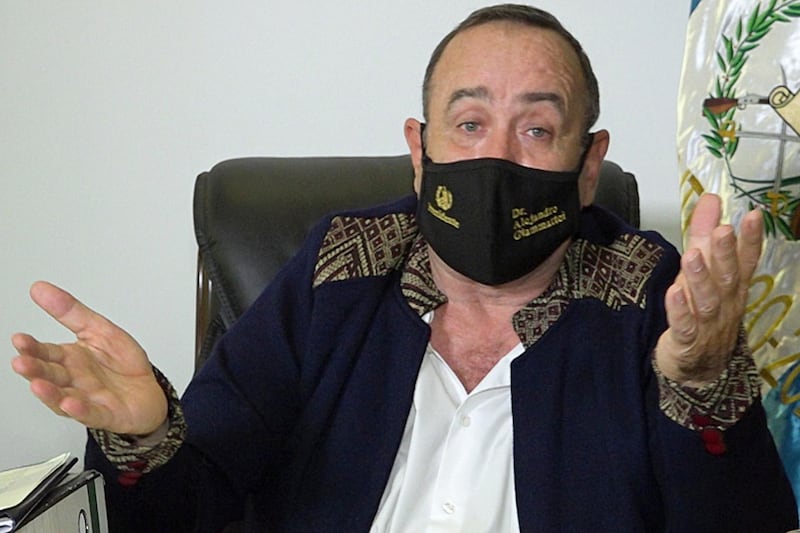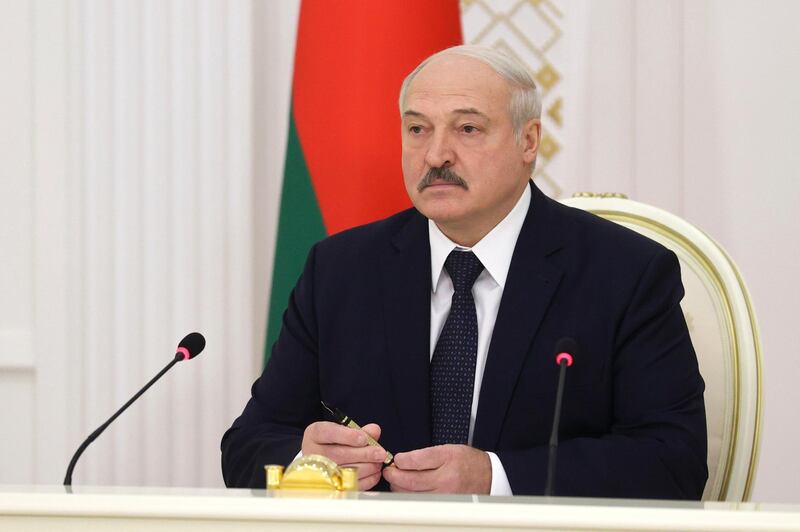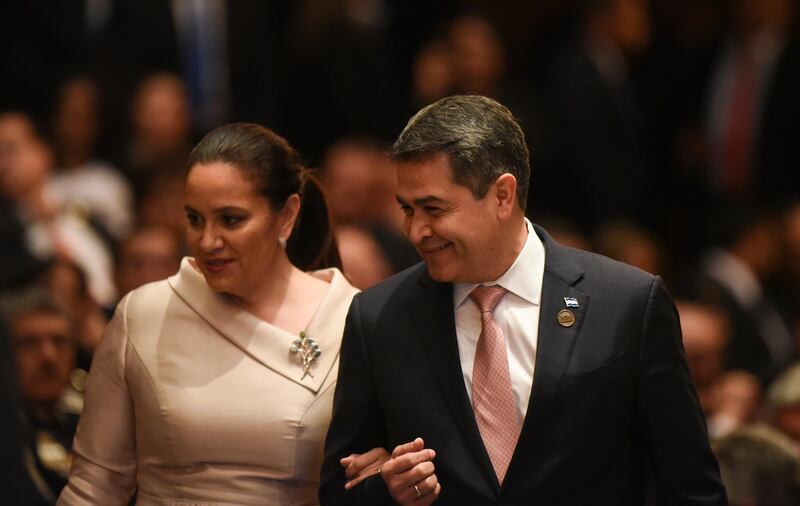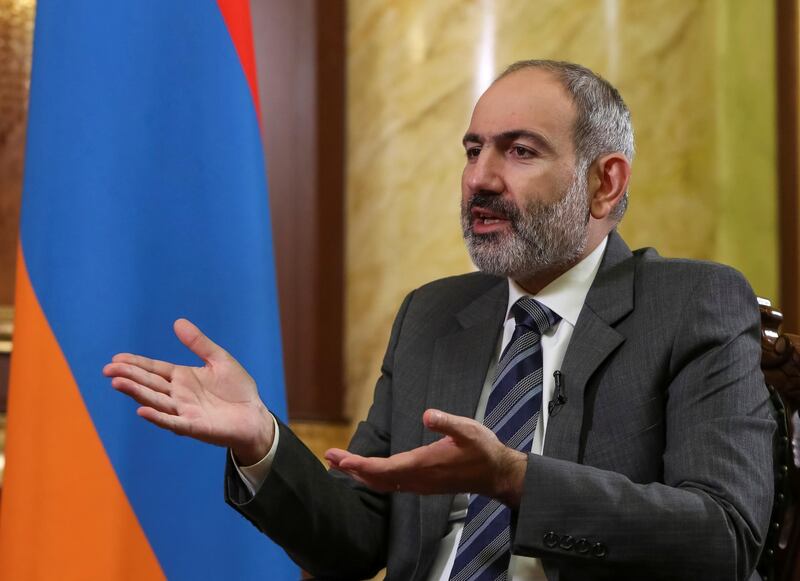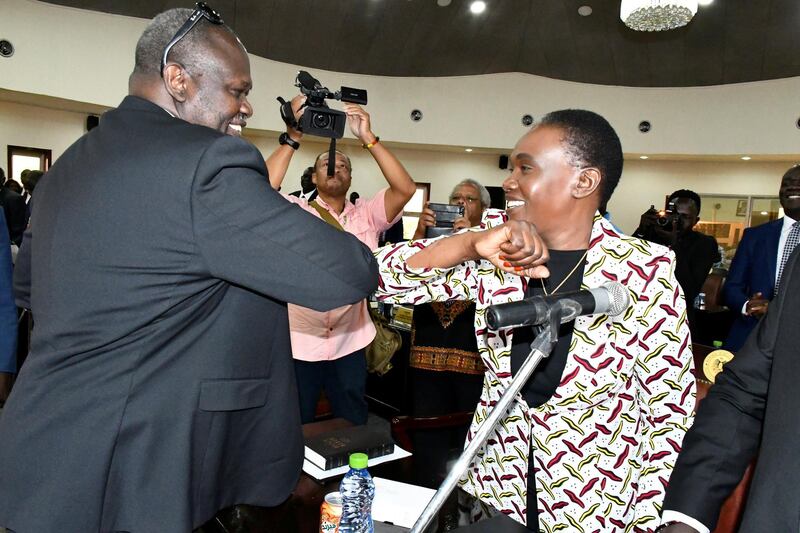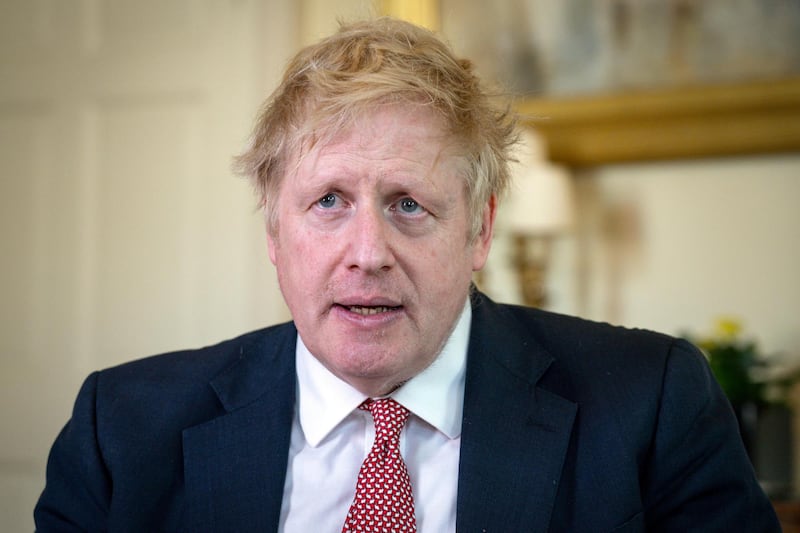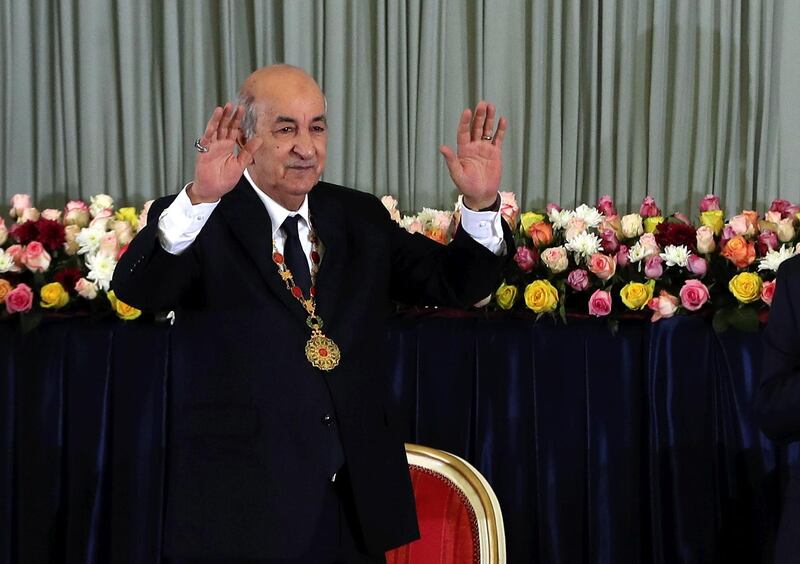President Donald Trump has tested positive for coronavirus but it will be at least five days after that result before he is likely to show any symptoms.
The announcement from the 74-year-old US president that he and his wife, Melania, had tested positive came shortly after he revealed a close aide, Hope Hicks, had contracted the virus.
According to experts, the nature of Mr Trump’s job and aspects of his own behaviour may have put him at greater risk of contracting Covid-19.
“That Donald Trump became infected was not an inevitability, but is consistent with him being a high-risk candidate for infection,” Professor Rowland Kao, professor of veterinary epidemiology and data science at the University of Edinburgh in the UK, said in a statement.
“[This is] both because of his apparent attitudes towards personal protective measures such as maintaining physical distance and towards face masks, but also because, as a public figure, he would be in contact with many people in many different places, including this being frequently at close quarters.”
Prof Kao said these factors also made Mr Trump more likely to infect others, and his actions now “have great importance” in preventing further outbreaks and “as an example to others”.
It was not until July that Mr Trump was seen wearing a face mask, three months after the US Centres for Disease Control (CDC) began recommending their use in public.
The Republican president had previously ridiculed Joe Biden, his Democratic challenger in November’s election, for his enthusiasm for wearing masks, although he later told the media he was “all for masks”.
Mr Trump has also been criticised for holding large campaign rallies at which there was little sign of social distancing or the wearing of masks.
One of those at a rally Mr Trump held in Tulsa, Oklahoma, in June was Herman Cain, a 74-year-old African-American businessman and former presidential contender, who was subsequently diagnosed with Covid-19 and died.
Given that the CDC recommends people potentially exposed to the coronavirus quarantine for 14 days, Mr Trump’s election campaign schedule – including the second head-to-head debate with Mr Biden, slated for October 15 in Miami – is likely to be affected.
Sean Conley, the White House physician, said, however, that he expected Mr Trump to carry on with his work as president “without disruption” despite his diagnosis.
If Mr Trump does begin to display serious Covid-19 complications, this is more likely five to seven days after symptoms develop, when a minority of patients start to develop pneumonia.
Mr Trump’s age and weight could put him at higher risk of serious complications, studies of those who have contracted the coronavirus suggest.
According to an article in August in the scientific journal Nature, about 116 of every 1,000 people in their mid-seventies or older who become infected with coronavirus will die.
Men have suffered significantly higher mortality rates than women, while being overweight is an additional risk factor with Covid-19.
Press reports from April quoting Dr Conley said Mr Trump weighed 244 pounds, or 111kg, which, for his six feet three inches height, put him slightly above the obesity threshold, according to the classification of the US National Heart, Lung and Blood Institute.
Indeed, the British Prime Minister, Boris Johnson, who is nearly two decades younger than Mr Trump, was treated in intensive care in April after developing Covid-19 and later admitted he was “too fat” at the time.
As doctors have learned more in recent months about how to treat the disease, survival rates for those who do fall seriously ill have improved.
Professor Naveed Sattar, a professor of metabolic medicine at the University of Glasgow in the UK, said in a statement that while Mr Trump had risk factors such as being older, male and overweight, there were positive indicators too.
“If he has no chronic conditions and is reasonably active – it seems likely so as he plays lots of golf and appears to walk quickly – then these may offset or attenuate his risks so that he may recover swiftly from the infection,” he said.

